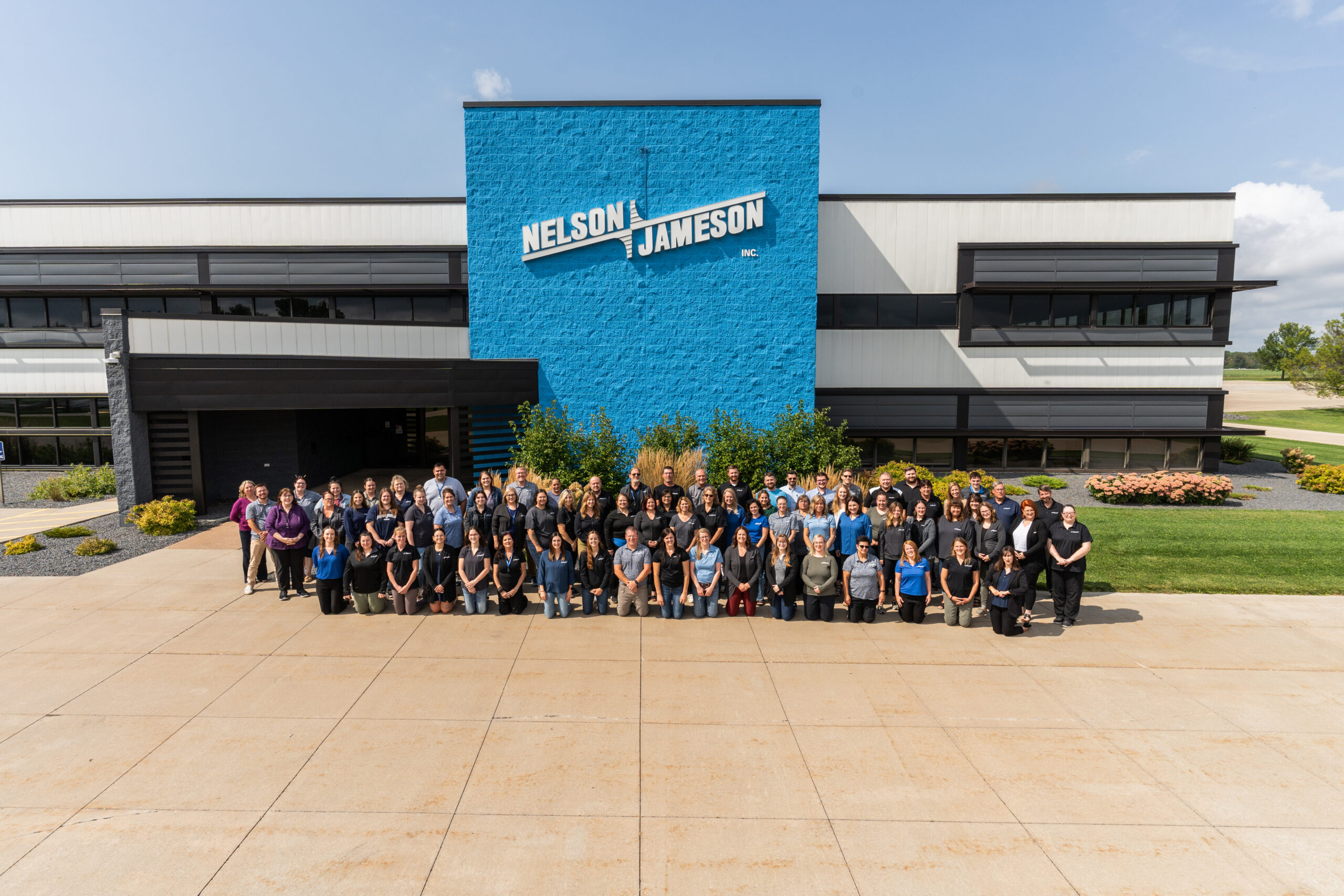In central Wisconsin, a fourth-generation distribution company has earned a global reputation for being a great place to work.
Nelson-Jameson, based in Marshfield, employs more than 200 people throughout Wisconsin and 100 more nationwide. The company represents more than 1,000 vendors and distributes 78,000 products of food, dairy and beverage supplies across the country.
The distributor recently earned a “Great Place to Work” certification for the second consecutive year. The global certification uses an employee engagement survey based on 30 years of research into general workplace culture.
News with a little more humanity
WPR’s “Wisconsin Today” newsletter keeps you connected to the state you love without feeling overwhelmed. No paywall. No agenda. No corporate filter.
“I think they feel like we have a culture that supports them and their families as far as work-life balance,” said Heather Simcakoski, vice president of employee and customer experience at Nelson-Jameson.
On WPR’s “Wisconsin Today,” she said the company’s achievements and survey results stem from the pride employees have contributing to communities and the food supply chain. Results showed:
- 87 percent of employees rated the company as a great place to work
- 94 percent reported feeling welcomed when they joined the company
- 95 percent said they feel comfortable taking time off
The following has been edited for clarity and brevity
Courtney Everett: This “Great Place to Work” model uses a survey to evaluate workplace culture. Is the survey anonymous — to measure how people truly feel?
Heather Simcakoski: It’s truly anonymous. We love the ability to give our employees a platform in which they can voice their feedback, whether it’s positive or if there is something that they feel we need to work on, and not have a fear that they’re going to be identified. We have a lot of pride in making sure that they’re aware of that.
CE: What’s important for employers to ask employees through a company survey?
HS: It’s really important to ask employees if they feel as though their leadership is listening. How do they feel that we can improve? Do they feel we’re focusing on the right things? Do they feel that the vision of the company is clear?
We’re really getting a pulse on how our employees are feeling, especially on the front lines. The larger a company gets, it can be easy sometimes to lose sight of how every employee is feeling. Make sure that what you’re doing, depending on which department or which level of the company you are, that those messages and that communication trickles down to your employees.
CE: What do you mean by the “right things”?
HS: We send a lot of our employees at all different levels of the organization to industry events. They participate in different trade shows, conferences, seminars — and they bring back the information that they’re hearing at these industry events.
We’re able to use that information to help make sure that we’re staying on the right path. We make sure we’re working on the real issues out there and solving the right problems.
CE: Last year, iHire, an employment platform, surveyed 2,000 U.S. workers. More than 600 employees said they quit in 2024 because of a toxic work environment, followed by poor company leadership. How can employers build trust that comes with respect and fairness to employees?
HS: I think it’s important to ask not only about how they’re feeling about their current job, but also how they feel that communication is trickling down. [Do] they feel like their management team has a clear vision and a clear direction?
We not only get that information from our employees, but make sure we’re acting on it, creating action plans so they can see a difference. We look for those trends year after year to make sure that the areas that we didn’t necessarily get the highest score in, we’re getting a higher score the next year in those areas.
CE: What do employees need to feel they have a voice?
HS: I think that they need to have a great relationship with their leadership team, their direct supervisor, as well as any department heads and broader leadership team. They need to make sure that they have that sense of mutual respect and that their job is important so they have a level of comfort sitting down and having those conversations with their supervisor.
Wisconsin Public Radio, © Copyright 2025, Board of Regents of the University of Wisconsin System and Wisconsin Educational Communications Board.






